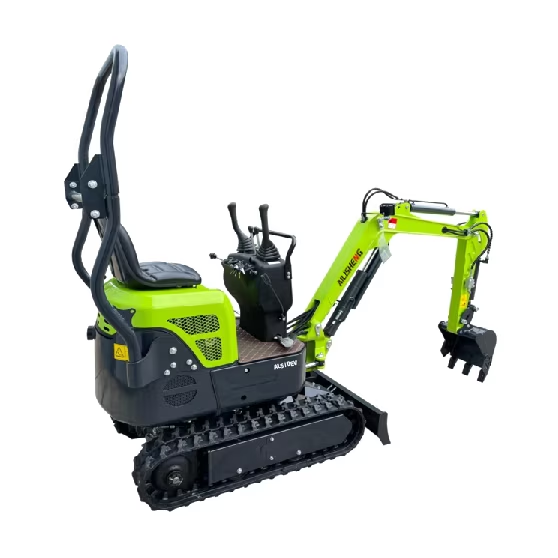When it comes to choosing between an electric mini excavator and a diesel-powered one, there are several factors to consider. Both types of machines have their own set of advantages and disadvantages, and it ultimately depends on your specific needs and priorities.
One of the main considerations when comparing electric mini excavators and diesel-powered machines is their environmental impact. Electric mini excavators are considered to be more environmentally friendly than their diesel counterparts for a number of reasons.
Zero Emissions and Noise Reduction
First and foremost, electric mini excavators produce zero emissions during operation. This means that they do not release harmful pollutants such as nitrogen oxides, particulate matter, and carbon monoxide into the atmosphere. In contrast, diesel-powered excavators emit these pollutants, contributing to air pollution and climate change.
Additionally, electric mini excavators are quieter than diesel-powered machines. This is an important factor to consider, especially when working in residential areas or noise-sensitive environments. The reduced noise levels of electric mini excavators can help minimize disruptions and create a more comfortable working environment for operators and those nearby.
Lower Carbon Footprint and Energy Efficiency
Another environmental benefit of electric mini excavators is their lower overall carbon footprint. While electric machines still require energy to operate, this energy can be sourced from renewable sources such as solar or wind power. In contrast, diesel-powered excavators rely on fossil fuels, which are finite resources that contribute to greenhouse gas emissions.
In terms of energy efficiency, electric mini excavators are also more efficient than diesel-powered machines. Electric motors are able to convert energy into mechanical power more effectively, resulting in lower energy consumption and operating costs. This can lead to long-term savings for operators and reduced dependence on fossil fuels.
Limitations of Electric Mini Excavators
On the other hand, there are some considerations to keep in mind when choosing an electric mini excavator over a diesel-powered one. One potential downside is the limited range and battery life of electric machines. Depending on the size of the project and the availability of charging infrastructure, operators may need to plan for more frequent recharging or have backup power sources on hand. 
Additionally, the initial cost of electric mini excavator can be higher than diesel-powered machines. However, this cost difference may be offset by lower operating costs, reduced maintenance requirements, and potential savings on fuel expenses in the long run.
Conclusion
In conclusion, when comparing electric mini excavators and diesel-powered machines, it is important to weigh the environmental benefits and drawbacks of each option. Electric mini excavators offer a cleaner, quieter, and more energy-efficient alternative to diesel-powered machines, making them a more sustainable choice for environmentally conscious operators. However, it is important to consider factors such as range, battery life, and upfront costs when making a decision. Ultimately, the choice between electric and diesel mini excavators depends on your specific project requirements and priorities.

